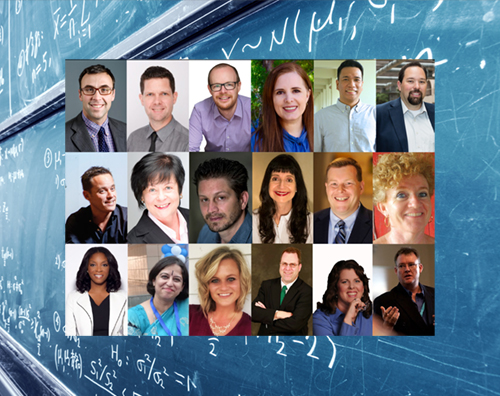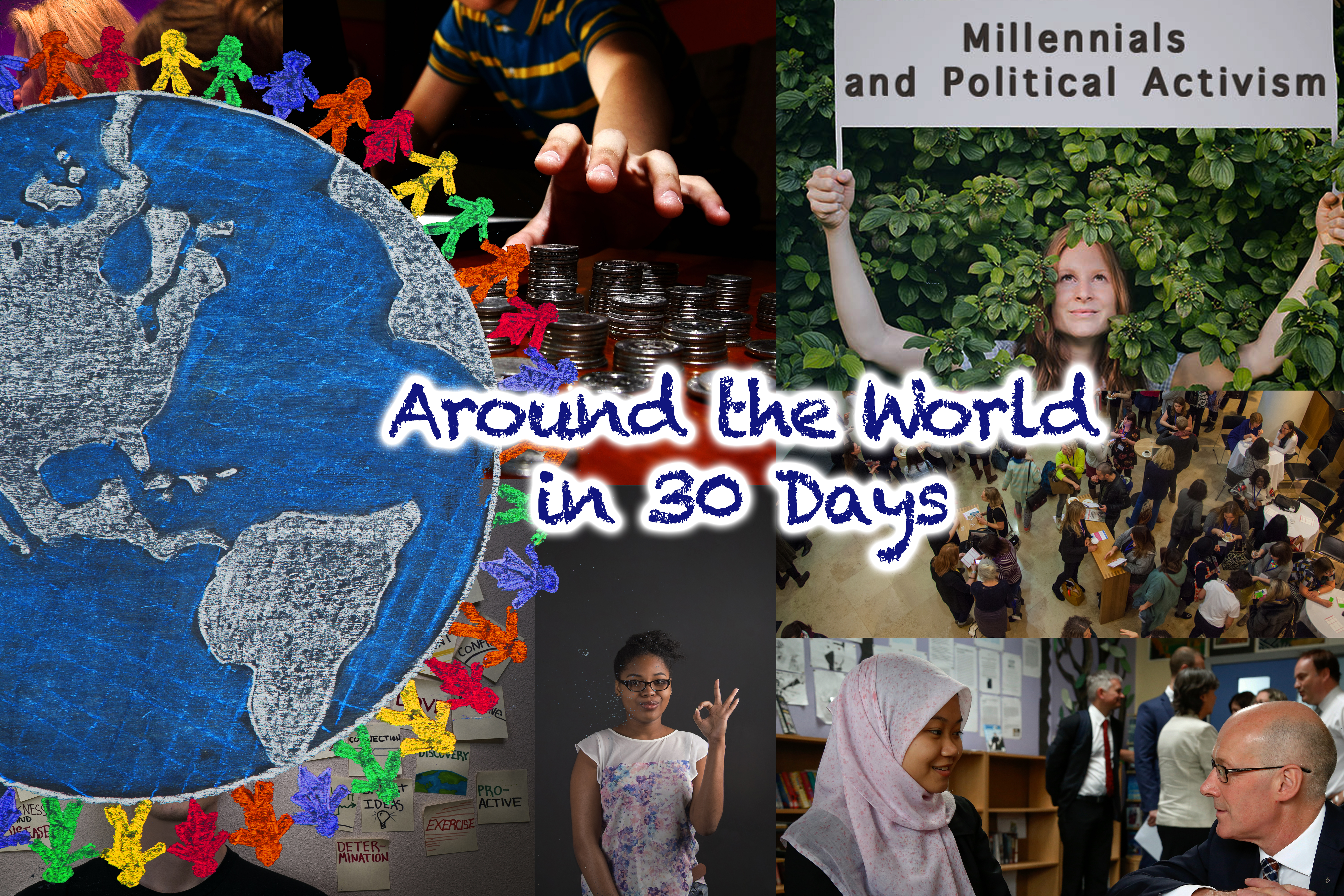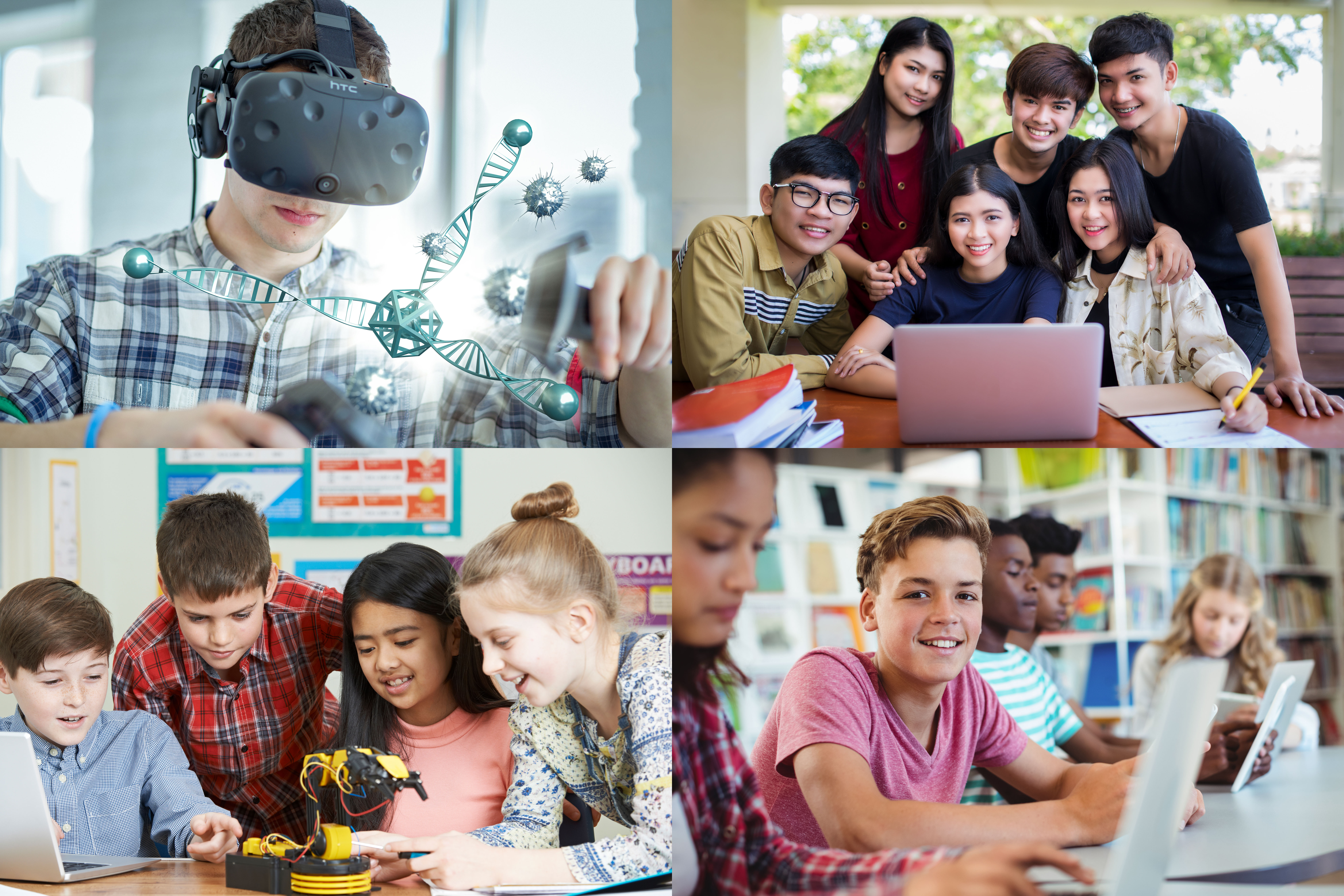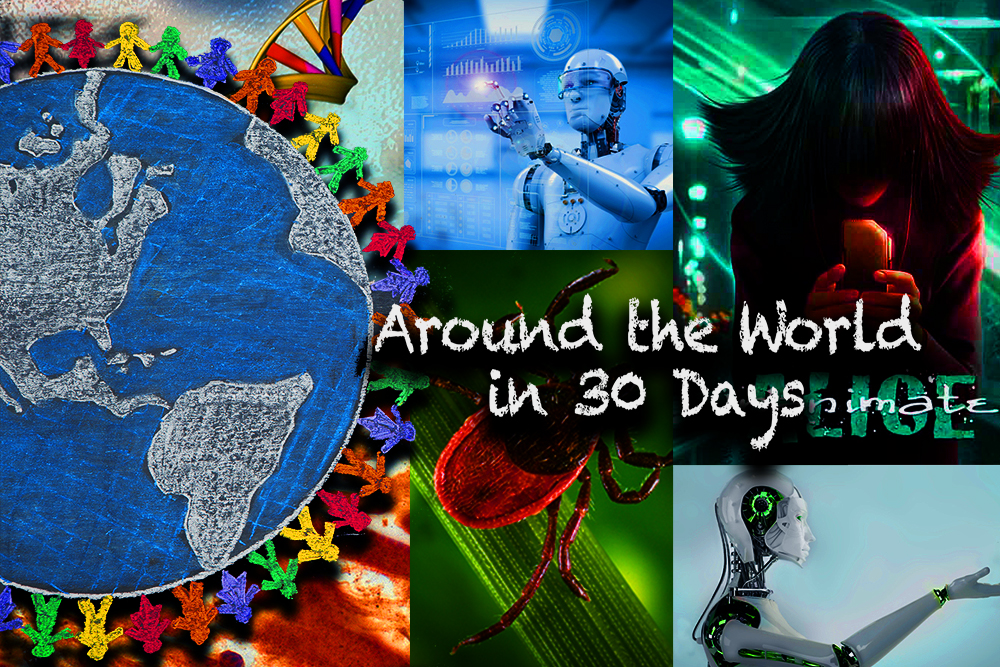There are now numerous studies which point to the fact that world-ready kids will require a holistic education. Knowledge, Skills, Attitudes and Values are all important when we talk about creating a holistic approach to learning. Quality schools with plenty of resources are creating frameworks needed to ensure kids are successful but it is often in the most vulnerable situations that communities are unable to focus on strengthening cognitive and emotional competencies – adaptability and social resilience. What are the solutions?
The Global Teacher Bloggers are pioneers and innovators in fields such as technology integration, mathematics coaching, special needs education, science instruction, and gender equity. They have founded schools, written curricula, and led classrooms in 16 different countries that stretch across every populated continent on earth. This month we asked our teachers to discuss what a holistic approach to learning should look like and to share specific examples of projects in progress from classrooms around the world.
When a disruptive student broke down and explained to Nadia Lopez (@TheLopezEffect), “I need money, mom lost her job, and these gangs keep trying to come for me. I don’t want to join them and end up in jail or dead,” she adopted a holistic approach to giving her student hope. Read More.
“What is the culture of your school?” writes Maarit Rossi (@pathstomath). The Kirkkoharju school in Finland has been busy as students transform two lunchrooms into the biggest restaurant in the South of Finland. How does this help to shape them as future-ready kids? Read More.
“Is everyone becoming anti-knowledge?” writes Richard Wells (@EduWells). “It’s a matter of balancing the provision of knowledge and genuine experiences that allow students to struggle and work through situations by practicing the now in-demand skills.” Read More.
“We are working to ensure that students encounter a real range of thought-provoking, developmental experiences and opportunities,” writes Miriam Mason (@EducAidSL) in Sierra Leone. A ‘Holistic Education Coordinator’ ensures that “there is a range of club activities that take pride of place in the day’s timetable first thing in the morning.” Read More.
With the 4th industrial revolution, societies are increasingly demanding,” writes guest blogger Ngô Thành Nam (@mrnamvas) who supports a “student-centered learning environment that enhances creativity, curiosity, and learning motivation.” Read More.
“We are doing our best to not only keep up with the changing face of digital learning but to lead it as well,” writes Craig Kemp (@mrkempnz). Inspired by global leaders such as George Couros and Abdul Chohan his school in Singapore aims “to be more adaptive and more energized about change and more thoughtful about the holistic view.” Read More.
For her new book, Elisa (@ElisaGuerraCruz) interviewed experts, researchers and teachers from around the world. “Teachers’ responses were as enthusiastic as they were diverse: global citizenship, soft skills, environmental awareness, digital literacy, critical thinking, relationships, teamwork, entrepreneurship, and even meditation!” Read More.
“It Takes Time to Develop and Learn,” writes Vicki Davis (@coolcatteacher). “Get rid of the Google it and copy it off Wikipedia projects and move more full-bodied comprehensive projects full of meaning and momentum into the classroom.” Read More.
“I believe every young mind should be trained on creating a balance between mind and heart along with other activities,” writes Rashmi Kathuria (@rashkath) who shares personal insights into balancing academic strength with physical fitness, life skills, living in a digital world and robotics. Read More.
The Top Global Teacher Bloggers is a monthly series where educators across the globe offer experienced yet unique takes on today’s most important topics. CMRubinWorld utilizes the platform to propagate the voices of the most indispensable people of our learning institutions – teachers.
(All pictures are courtesy of CMRubinWorld)
Top Row L to R: Armand Doucet, Craig Kemp, Richard Wells, Elisa Guerra Cruz, Jim Tuscano, Carl Hooker
Middle Row L to R: Jelmer Evers, Maarit Rossi, Koen Timmers, C.M. Rubin, Michael Soskil, Miriam Mason-Sesay
Bottom Row L to R: Nadia Lopez, Rashmi Kathuria, Shaelynn Fransworth, Adam Steiner, Vicki Davis, Warren Sparrow
Join me and globally renowned thought leaders including Sir Michael Barber (UK), Dr. Michael Block (U.S.), Dr. Leon Botstein (U.S.), Professor Clay Christensen (U.S.), Dr. Linda Darling-Hammond (U.S.), Dr. MadhavChavan (India), Charles Fadel (U.S.), Professor Michael Fullan (Canada), Professor Howard Gardner (U.S.), Professor Andy Hargreaves (U.S.), Professor Yvonne Hellman (The Netherlands), Professor Kristin Helstad (Norway), Jean Hendrickson (U.S.), Professor Rose Hipkins (New Zealand), Professor Cornelia Hoogland (Canada), Honourable Jeff Johnson (Canada), Mme. Chantal Kaufmann (Belgium), Dr. EijaKauppinen (Finland), State Secretary TapioKosunen (Finland), Professor Dominique Lafontaine (Belgium), Professor Hugh Lauder (UK), Lord Ken Macdonald (UK), Professor Geoff Masters (Australia), Professor Barry McGaw (Australia), Shiv Nadar (India), Professor R. Natarajan (India), Dr. Pak Tee Ng (Singapore), Dr. Denise Pope (US), Sridhar Rajagopalan (India), Dr. Diane Ravitch (U.S.), Richard Wilson Riley (U.S.), Sir Ken Robinson (UK), Professor Pasi Sahlberg (Finland), Professor Manabu Sato (Japan), Andreas Schleicher (PISA, OECD), Dr. Anthony Seldon (UK), Dr. David Shaffer (U.S.), Dr. Kirsten Sivesind (Norway), Chancellor Stephen Spahn (U.S.), Yves Theze (LyceeFrancais U.S.), Professor Charles Ungerleider (Canada), Professor Tony Wagner (U.S.), Sir David Watson (UK), Professor Dylan Wiliam (UK), Dr. Mark Wormald (UK), Professor Theo Wubbels (The Netherlands), Professor Michael Young (UK), and Professor Minxuan Zhang (China) as they explore the big picture education questions that all nations face today.
The Global Search for Education Community Page
C. M. Rubin is the author of two widely read online series for which she received a 2011 Upton Sinclair award, “The Global Search for Education” and “How Will We Read?” She is also the author of three bestselling books, including The Real Alice in Wonderland, is the publisher of CMRubinWorld and is a Disruptor Foundation Fellow.
Follow C. M. Rubin on Twitter: www.twitter.com/@cmrubinworld







Recent Comments